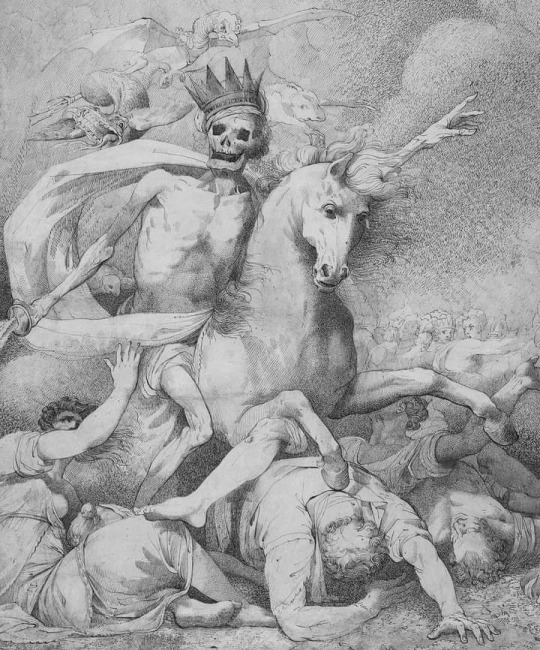#1775
Photo
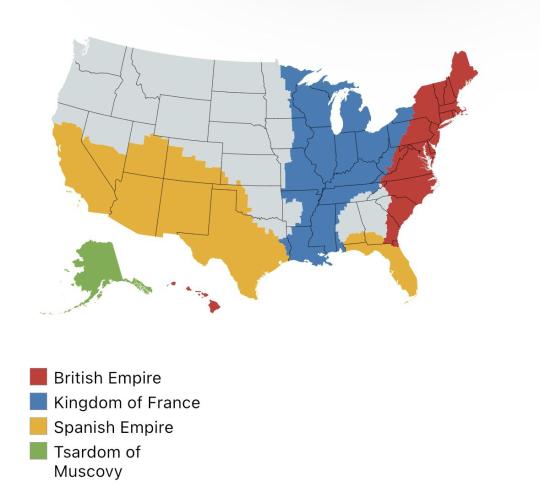
Colonial Powers in modern day United States, 1775
2K notes
·
View notes
Text
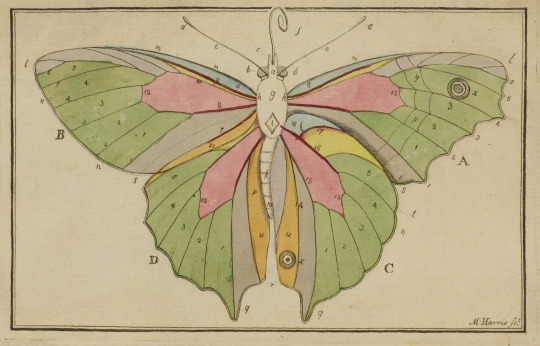
Parts of the butterfly. The English lepidoptera, or, The Aurelian's pocket companion. 1775. Frontispiece.
Internet Archive
1K notes
·
View notes
Text

284 notes
·
View notes
Text
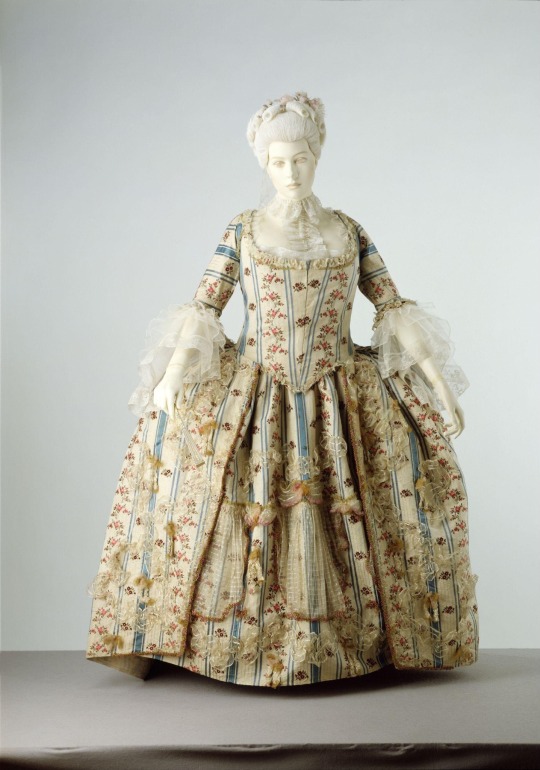
Beige Striped Silk Robe à la Française, ca. 1775, English.
Victoria and Albert Museum.
#v&a#womenswear#extant garments#dress#silk#stripes#1775#1770s#robe à la française#1770s extant garment#1770s dress#1770s England#1770s Britain#English#British
184 notes
·
View notes
Text
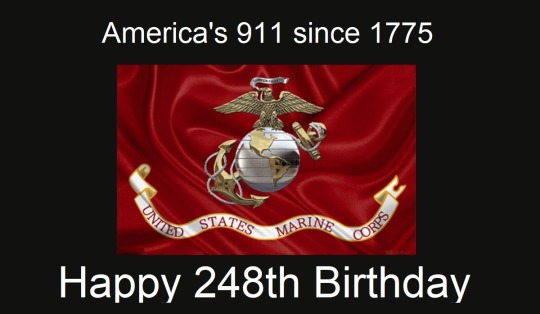
Semper fidelis
#USMC#Marine Corps#Marines#USMC Birthday#November 10#1775#Devil Dogs#Leathernecks#Semper fidelis#Sember Fi#Military#Marine Birthday
121 notes
·
View notes
Text

Herd of Deer under an Oak Tree, Thomas Rowlandson, 1775-1827
#herd of deer under an oak tree#Thomas rowlandson#rowlandson#1775#1770s#1700s#18th century#1827#1820s#1800s#19th century#drawing#art
47 notes
·
View notes
Text
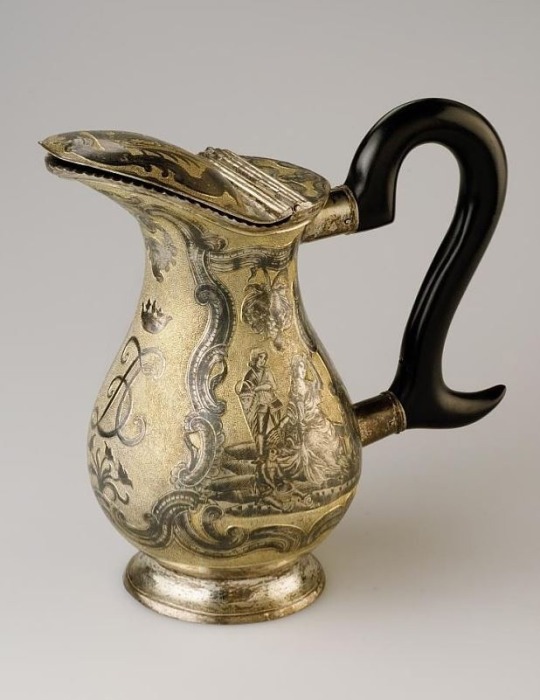
Coffee pot. Tobolsk (1775) Master P. Shimgin.
Кофейник. Тобольск (1775) Мастер П. Шимгин.
30 notes
·
View notes
Photo
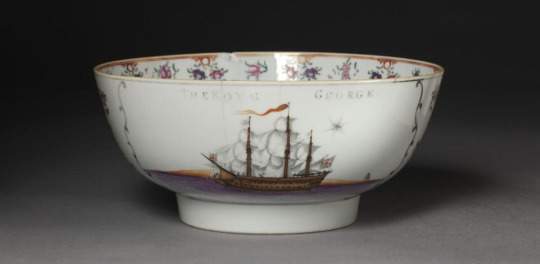
Bowl with “The Royal George”, made in China, c. 1775
60 notes
·
View notes
Text
"while he was away being a daddy at Congress...." was something I almost included in this essay I'm currently writing.
Anyway here's pics of Independence Hall 10-26-2023

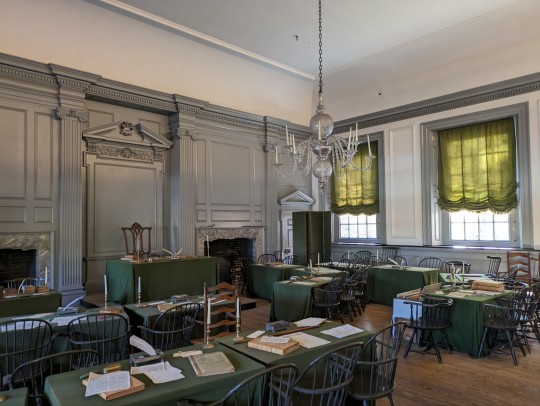
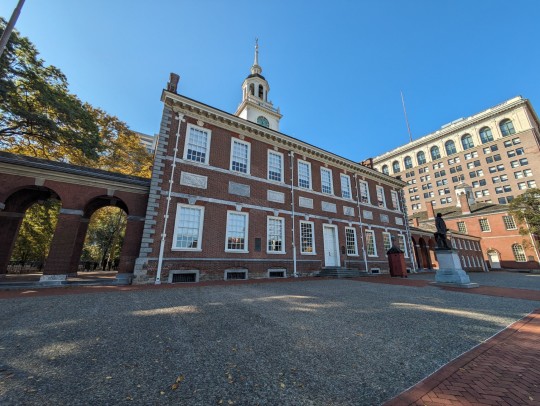
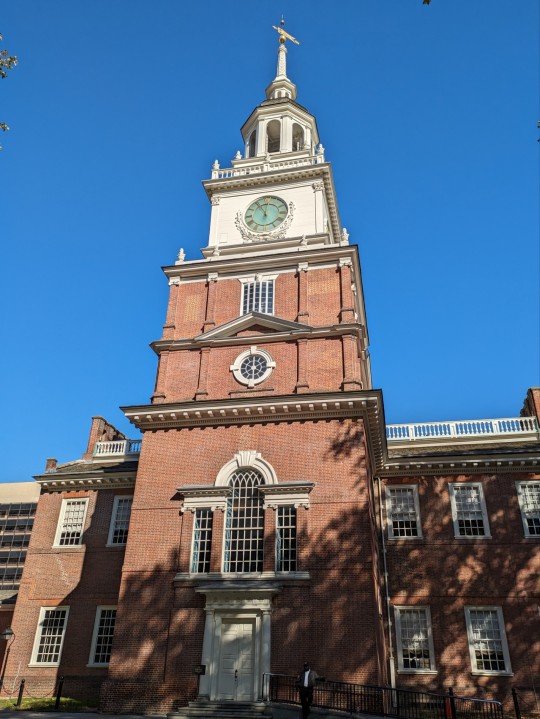
#congressional daddies#founding daddies#american revolution#1775#1776#18th century#independence hall
19 notes
·
View notes
Photo
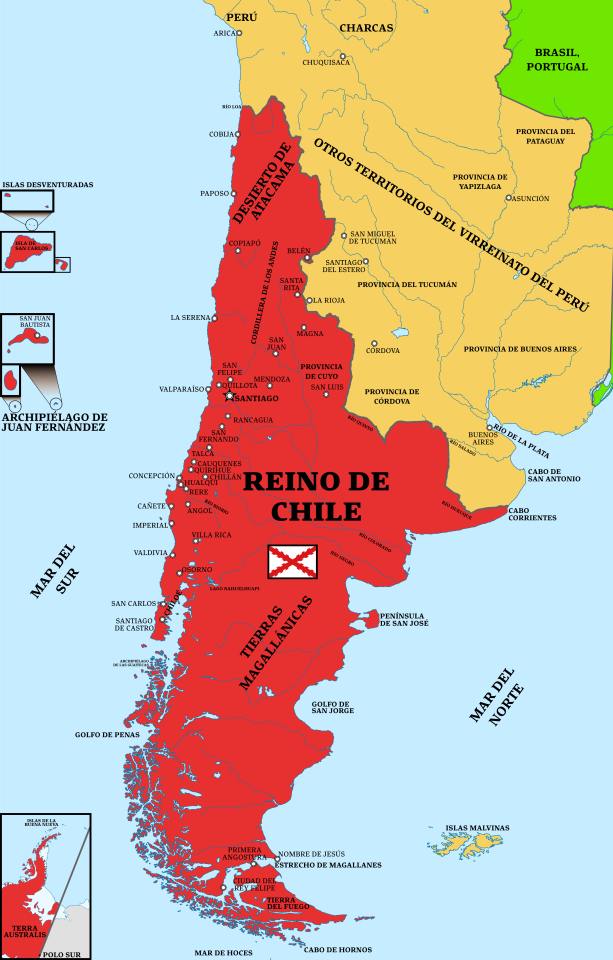
Map of the Captaincy General of Chile or Kingdom of Chile in 1775.
Boundaries based on the 1775 map of South America by Juan de la Cruz Cano y Olmedilla and the 1973 general map of the Kingdom of Chile by Andrés Baleato.
It includes all the territories assigned de iure without prejudice of whether they had effective possession. Among these are the Magellanic Lands (Modern Chile or Patagonia), Atacama, the Province of Cuyo (segregated a year later), Chiloé, San Carlos Island (Rapa Nui), Terra Australis (Antarctica), among other territories. It includes settlements in force in 1775 as well as those destroyed in the Araucanía area and abandoned in the Strait of Magellan.
79 notes
·
View notes
Text

Pair of Wedgwood & Bentley agateware vases and covers. Made in the Etruria factory in Staffordshire, England, c. 1775.
#ceramics#design history#art history#pottery#fine art#pattern#decorative arts#ornament#homewares#home accessories#etruria#18th century#1770s#1775#vase#staffordshire pottery#the potteries#thomas bentley#josiah wedgwood#wedgwood#wedgwood and bentley
38 notes
·
View notes
Text
24 Days of La Fayette - December 24th: Doctor James McHenry
I hope that everybody who celebrates Christmas has a most happy and blessed day!
There were no posts these last few days because life simply got in the way. But they will follow in a few days. :-)
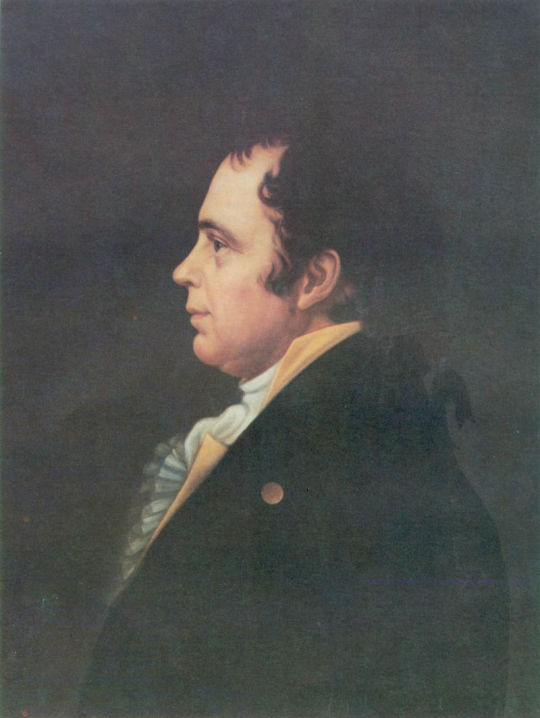
On this last day we focus on the most famous (and probably the most beloved by the modern audience) aide-de-camp of La Fayette – Doctor James McHenry. I purposely kept the part about his life before and after his tenure as aide-de-camp to La Fayette brief. Not because there is not enough information, quite the contrary – McHenry was very involved in the politics and social life of the young Republic, and one could fill volumes with his life and actions.
He was born on November 16, 1753 in Dublin and was educated there before emigrating to Philadelphia in 1771. After a short pause, he continued to study medicine under Doctor Benjamin Rush, one of the signers of the Declaration of Independence. He joined the war effort out of patriotism for his new home and worked at the American Continental Hospital in the fall of 1775 before being appointed surgeon for the 5th Pennsylvania Regiment on August 10, 1776. He was captured during the assault on Fort Washington on November 16 of the same year and spend his time treating fellow prisoners of war. McHenry was part of a prisoner exchange in March of 1778, and he returned to the army and served as a surgeon during the encampment in Valley Forge. In May of 1778 he accepted George Washington’s offer to become one of his assistant secretaries. Two years later, in 1780, McHenry was yearning for a change.
James McHenry wrote to George Washington on July 18, 1780:
I would beg leave to mention to your Excellency, a matter, in which I feel too much to be longer without laying it before you. The approaching campaign opening an interesting field, makes me desirous to appear, in a more military character, than that I now hold. I have also had before me for some time past, a prospect of visiting Europe; and especially those places where our interest is most cherished: And as my present character, of secretary, is not in the same estimation, there, as with us, I would therefore request your Excellency, that I may be considered as a volunteer. Hitherto, I have acted without pay, and it is my intention to receive none in future, unless some alteration in my circumstances render it necessary. If I receive your permission, to come as a volunteer, or accept such a station in the army as may place me, wholly, in a military light, I shall be happy, because, in it, I combine, with what I owe myself, that duty proper to my country.
“To George Washington from James McHenry, 18 July 1780,” Founders Online, National Archives, [Original source: The Papers of George Washington, Revolutionary War Series, vol. 27, 5 July–27 August 1780, ed. Benjamin L. Huggins. Charlottesville: University of Virginia Press, 2019, pp. 175–176.] (12/21/2022)
In alignment with McHenry’s remarks that he desired a more “hands-on” position in the army and desired to be employed in a military position, he transferred to La Fayette’s staff in August of 1780 and became the Marquis’s voluntary aide-de-camp. While an aide-de-camp was still a far cry from a field-command, the position was more military than the position of a secretary.
Alexander Hamilton wrote to James Duane on July 22, 1780:
I take the liberty my Dear Sir to request your interest for a friend of mine and a member of the family, Dr McHenry. He wishes to quit a Station which among foreigners is not viewed in a very reputable light and to get into one more military. He will go into the Marquis’s family as an aide. He has been in the army since the commencement of the War—first in the medical line, since the 15th of May 78, as a Secretary to the Commander in Chief. You know him to be a man of Sense and merit. A more intimate acquaintance with him makes me hold him as such in an eminent degree. He has now no military existence properly speaking—no rank. I believe he is not immoderate.
“From Alexander Hamilton to James Duane, [22 July 1780],” Founders Online, National Archives, [Original source: The Papers of Alexander Hamilton, vol. 2, 1779–1781, ed. Harold C. Syrett. New York: Columbia University Press, 1961, pp. 363–364.] (12/21/2022)
In his new position, McHenry was a direct witness to one if not the greatest scandal during the American Revolution – McHenry was at the breakfast table with Benedict Arnold when Arnold received the letter informing him of John André capture. La Fayette wrote to the Chevalier de La Luzerne on septembre 26, 1780:
When we left Fishkill yesterday we were preceded by one of my aides-de-camp and the aide of General Knox, who found General and Mrs. Arnold at table and joined them for breakfast. While they were there, two letters were brought to General Arnold informing him of the capture of a spy. He ordered a horse to be saddled, then went upstairs to his wife to tell her he was ruined, and commanded his aide-de-camp to tell General Washington that he was going to West Point and would return within an hour.
Idzerda Stanley J. et al., editors, Lafayette in the Age of the American Revolution: Selected Letters and Papers, 1776–1790, Volume 3, April 27, 1780–March 29, 1781, Cornell University Press, 1980, pp. 179-180.
It was around the same time that McHenry set out to secure a fixed rank for himself, since under La Fayette he was only employed as a volunteer. He benefited in his endeavor from the help of his former fellow staff-member, Alexander Hamilton. Philip Schuyler wrote to Alexander Hamilton, his future son-in-law, on September 16, 1780:
I have communed with the Governer on the Subject of McHenrys wish; he is very much disposed to use his Influence on the occasion but doubts if he should be able to obtain a lieutenancy unless the Ensigns that now are could all be provided for. If McHenry merely wants military rank for the campaign and will not accept of an Ensigncy, The Governor can and will give him a Lieut Colonelcy in the State levies, which will always give him rank in our militia and Consequently in the army when the militia is in the field; but this must be determined before the legislature rises; please therefore to desire McHenry to write me on the Subject without delay, and to assure him of my best services in my power.
“To Alexander Hamilton from Philip Schuyler, 16 September 1780,” Founders Online, National Archives, [Original source: The Papers of Alexander Hamilton, vol. 2, 1779–1781, ed. Harold C. Syrett. New York: Columbia University Press, 1961, pp. 432–434.] (12/21/2022)
Congress eventually granted James McHenry the rank of Major (although not everybody was exactly happy with this agreement) in April of 1780. General Greene had spoken out in McHenry’s favour and had possible tipped the scale in McHenry’s favour.
Report
9th and 10th That Tench Tilghman Esq: receive the Commission of Lieut. Colonel to take Rank from and Doctor McHenry the Commission of Major to take Rank from.
Remarks
9th—and 10th—Mr Tilghmans Commission to be dated the 1st of april 1777. Mr McHenrys from the time at which Genl Greene applied in his favr—(last Octobr).
“Report and Remarks, 3 April 1781,” Founders Online, National Archives, [This is an Early Access document from The Papers of George Washington. It is not an authoritative final version.] (12/21/2022)
In the General Orders for June 5, 1781 we can read the following:
That Doctor James McHenry receive the Commission of Major in the Army of the United States to take rank from the 30th of October last.
“General Orders, 5 June 1781,” Founders Online, National Archives, [This is an Early Access document from The Papers of George Washington. It is not an authoritative final version.] (12/21/2022)
General Greene was an important proponent of McHenry’s and wrote to George Washington on May 3, 1781:
When I was appointed to the command of this army, I solicited Congress to give Doctor McHenry a majority that he might serve me in the character of an aid. This they refused. I was perswaded when I made the application of the necessity, and since have felt it, most sensibly. Your Excellency can scarsely tell how happy you are in your family and therefore can hardly judge of my situation. I cannot make a second application to Congress upon this subject, nor should I have hopes of succeeding if did, but I shall esteem it a peculiar mark of your Excellency[s] friendship and esteem if you will interest yourself in the matter and get him a Majority.
“To George Washington from Nathanael Greene, 1 May 1781,” Founders Online, National Archives, [This is an Early Access document from The Papers of George Washington. It is not an authoritative final version.] (12/21/2022)
Washington had been aware of Congress initial refusal and was quite angry at the time. He had written to Joseph Jones on January 27, 1781:
I was concerned when I came to Congress to hear so small a favor was refused Genl Greene then going to his new Command as that of granting his request respecting Dr McHenry—from my conversation with Gentlemen on the subject many think the Genl shod have been indulged and if it [can] be done the question will probably be revived This however the Dr shod not be acquainted with least the attempt shod be unsuccessfull.
“To George Washington from Joseph Jones, 27 February 1781,” Founders Online, National Archives, [This is an Early Access document from The Papers of George Washington. It is not an authoritative final version.] (12/21/2022)
Although this affair left some aftertaste, life went on with McHenry as a Major under La Fayette – who was very warmly attached to McHenry. La Fayette wrote on February 15, 1781:
Every Body Says You Are Going to Get Into the Governor's Council. If You Quit the House for the field, I shall Be Very Happy to obtain the Preference in Your Military Employements, and Hoping You know My tender friendship and affectionate Regard for You, will Not lengthen this letter with Assurances from My Heart While the Heart itself must Be known to You. 10 I intend to write You Again in a few days and with Every Sentiment of Attachement and Esteem Have the Honor to be Yours
Idzerda Stanley J. et al., editors, Lafayette in the Age of the American Revolution: Selected Letters and Papers, 1776–1790, Volume 3, April 27, 1780–March 29, 1781, Cornell University Press, 1980, pp. 322-325.
La Fayette was alluding to the fact that McHenry tried to become a member of the Maryland Council. This appointment never came to pass but he instead became a member of the Maryland Board of War and La Fayette often commented in his letters, how industrious McHenry was on behalf of Maryland. His diplomatic ties and great patriotic zeal brought him in an ideal position to function as a liaison officer between La Fayette and civil authorities in Maryland in Virginia. He served under La Fayette during the complete Virginia campaign and during the Battle of Yorktown.
Towards the end of 1781 Nathanael Greene wrote to La Fayette and asked if McHenry may be transferred into his own staff. La Fayette replied to the request on August 12, 1781:
My Dear General
I Have Received Your letters Concerning Mr. McHenry, And Have Considered them with that Attention I pay to Every thing that Concerns You, and that interest which is founded upon My Most affectionate friendship.
McHenry is So well Acquainted with My Sentiments for Him that He knows My attachement is independant of whatever Steps He Might take on the occasion. He knows I am not of a temper that finds faults with the Measures of My friends, and that I will ever feel an obligation to the Man who obliges General Greene.
Give me leave to observe, My dear Sir, that upon Every principle
which Makes Mr. McHenry Useful to you, He Must in My Circumstances Be Still more useful to me. I May add that Clel. Nevill and Mr. Langhorne Being prisoners, I Have No aid de Camp But McHenry and Washington, But I am willing to give up My interest to your wishes, and McHenry's Remaining Some time with me is owing to an other Circumstance.
He is far from Being determined to Accept of a Military Commission. He Has Expectations of a Seat in the Senate and would much prefer it. This will Be determined Next Month and was He Now to join you it would Seem He Renounces an object which He expects without Sollicitation But which He would Seem to give up By going to So far a Distance.
The Matter Being Such Stated, My dear general, You will Be able to determine what to wish. You ask My Consent, and I Give itHeartly or to speak Better affectionately for tho' I will Be glad He joins you I Cannot Help Being Sorry to part from Him. But I Sincerely think if He Has no Senatorial prospects He ought to pay you a visit. It is His Intention, and I will not only Consent But join with you and with Him in that desire and that opinion. Should I go to France towards the End of the winter, and Should He wish to devote that time to travels I am Sure you would Return me the Sentiment I evince to you when I advise McHenry to join for a time your family. With the Most tender affection Your friend for ever
Idzerda Stanley J. et al., editors, Lafayette in the Age of the American Revolution: Selected Letters and Papers, 1776–1790, Volume 4, April 1, 1781–December 23, 1781, Cornell University Press, 1981, pp. 318-219.
Greene had previously on July 24, 1781 written to McHenry:
I wish you with me exceedingly; but there is no inconvenience to which I will not subject my self to oblige the Marquis
Idzerda Stanley J. et al., editors, Lafayette in the Age of the American Revolution: Selected Letters and Papers, 1776–1790, Volume 4, April 1, 1781–December 23, 1781, Cornell University Press, 1981, p. 319.
Since McHenry was elected to the Senate of Maryland on September 12, 1781, he never joined Greene’s staff and resigned his commission in December of that year. He would continue to have a prosperous career as a physician as well as a politician. Among other things, he served as Secretary of War, both under President George Washington and under President John Adams.
James McHenry died on May 3, 1816.
#24 days of la fayette#la fayette's aide de camps#james mchenry#marquis de lafayette#la fayette#letters#george washington#founders online#1753#1816#french history#american revolution#american history#history#nathaneal greene#benedict arnold#john andré#1771#1775#1776#1778#1780#1781#alexander hamilton#philip schuyler#continental congress#joseph jones#james duane#chevalier de la luzerne
47 notes
·
View notes
Text
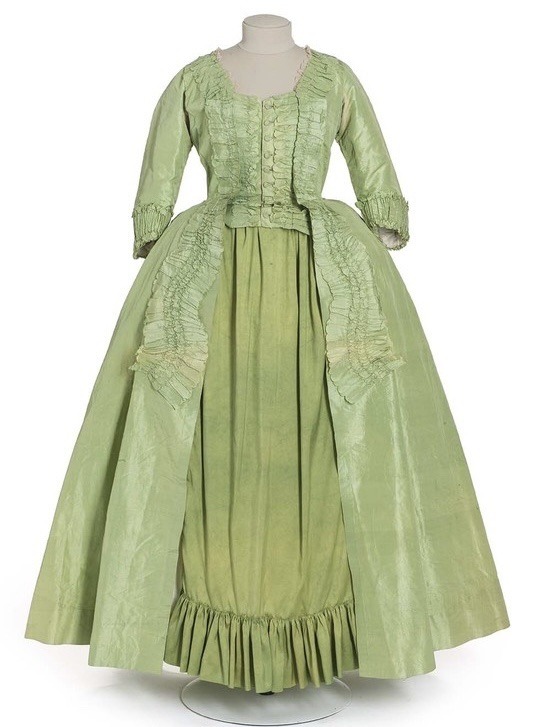

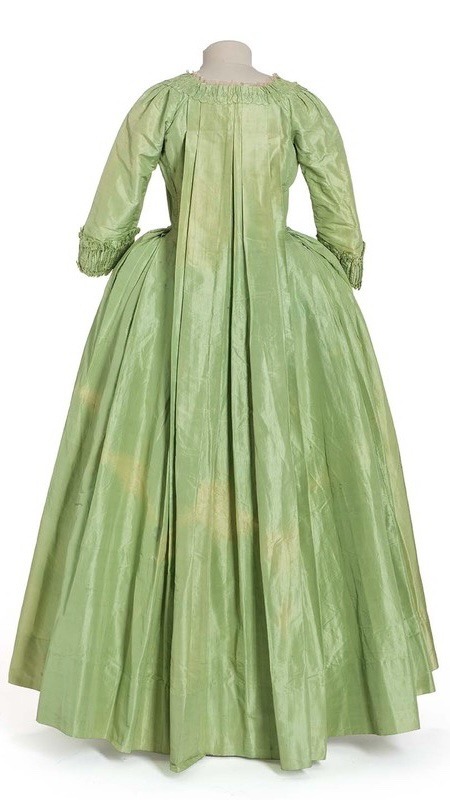
Pale Green Taffeta Dress, 1775-1785, French.
Musée des Arts Décoratifs Paris.
#womenswear#extant garments#dress#silk#green#18th century#1775#1770s#1780s#1770s dress#1780s dress#1770s france#1780s France#mad paris#musée des arts décoratifs paris#France#French#reign: louis xvi#1776#1777#1778#1779#1780#1781#1782#1783#1784#1785#1770s extant garment#1780s extant garment
260 notes
·
View notes
Text
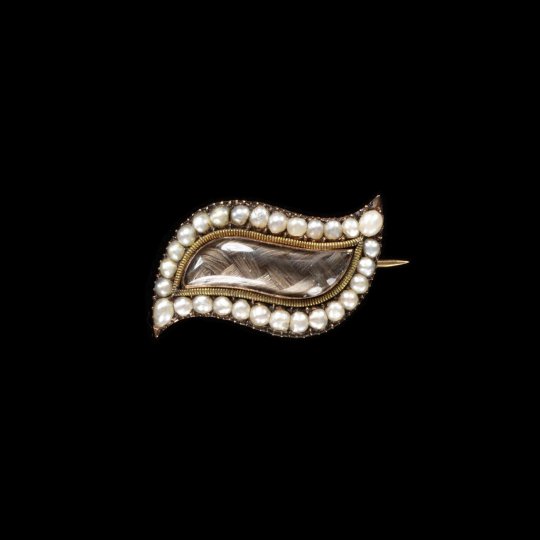
Brooch with woven hair, 1775-1800
From the Victoria and Albert Museum
#brooch#jewellery#hair jewellery#fashion#fashion history#1775#1800#1770s#1780s#1790s#1800s#1700s#18th century#19th century#georgian
17 notes
·
View notes
